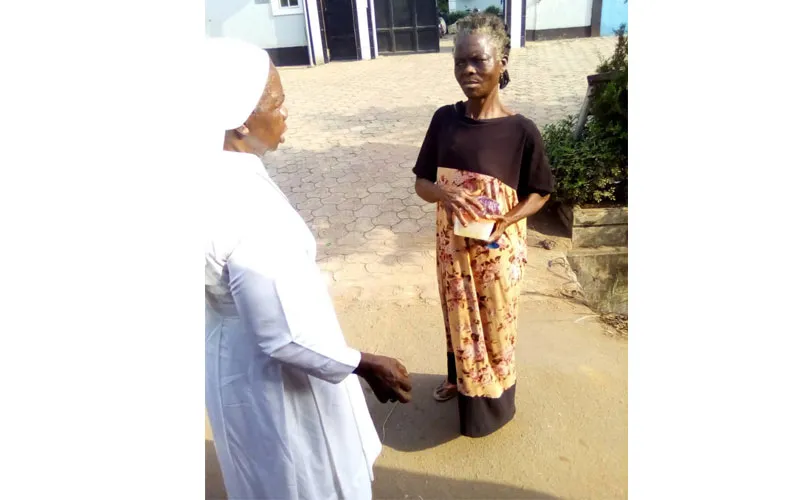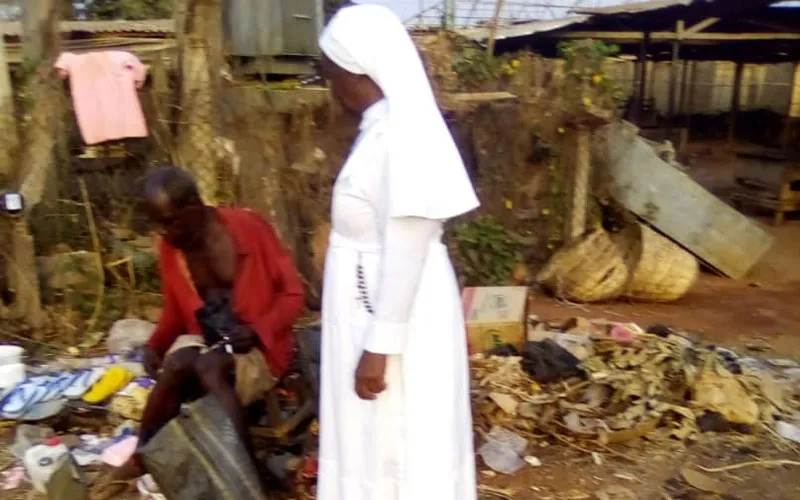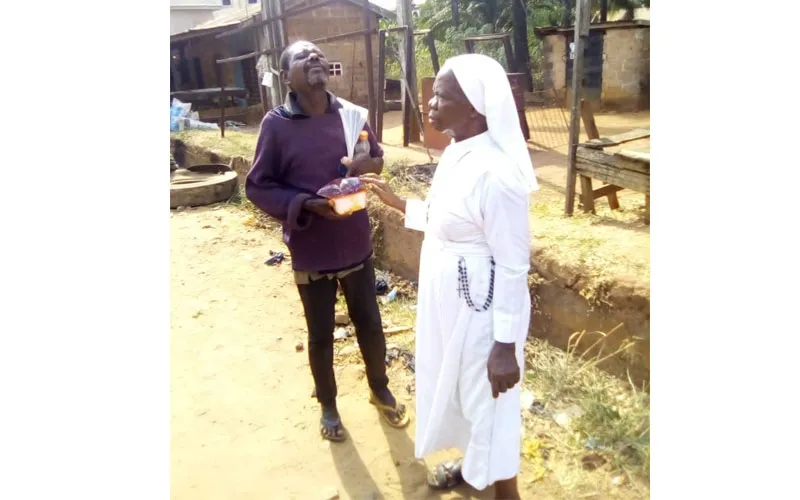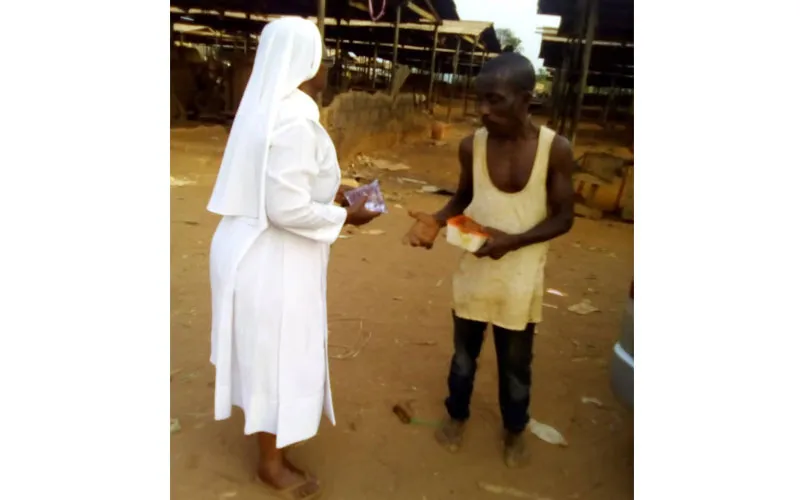Explaining what inspires her to reach out to the displaced and mentally challenged people in Nigeria, Sr. Nkiru, who survived a fatal shooting incident last month, said, “I have very deep feelings for the poor. I am also guided by the spirit of our Mother Foundress, a great woman, who always showed concern for the needy.”
“Among the mentally challenged people on the streets, I see Christ walking naked. I see Christ who is thirsty and who needs something to eat. I see Christ who has no home or family. In them, I see Christ who goes around begging,” she said.
Catholic entity Denis Hurley Peace Institute (DHPI) is researching the activities of the Fulani herdsmen in Central and Southern parts of Nigeria and has warned of “a gathering storm” in the regions as the world focuses attention on the activities of Boko Haram in the North.
The peace entity of the Southern African Catholic Bishops’ Conference (SACBC) has been monitoring and documenting growing oppression of civilians in Ogun State, Cross River, Benue, Ebonyi, Imo and Anambra States by militants that the organization links to top leadership of the country.
 Credit: Sr. Esther Nkiru Ezedinachi
Credit: Sr. Esther Nkiru Ezedinachi
(Story continues below)
In Anambra, where DHPI conducted a study in September last year, the entity’s Director, Johan Viljoen, has described the security situation as “critical.”
“There is widespread destruction of houses and farms. No crops are being grown. The way the crisis presents itself differs from Benue State, in as far as there are no camps or settlements for IDPs, they have taken shelter with friends or relatives in safer areas, or are wandering the streets as homeless people,” the DHPI official said.
In the Catholic Diocese of Ekwulobia, there is no camp for the IDPs. Instead, the people are scattered around the State and trying to survive on the streets, DHPI has reported.
The IDPs, DHPI reports, were forced to leave their houses unexpectedly when the armed Fulani militia raided their villages, destroyed their homes and livelihoods, and murdered their loved ones in front of them.
The peace entity of SACBC reports that IDPs live in constant fear of being attacked and they are left hiding in bushes, sleeping in abandoned houses and scavenging for whatever food they can find.
DHPI reports, in reference to the IDPs in Nigeria, “The level of trauma these people have been through is incomprehensible, as they have watched family members killed, their bodies dismembered, women and children raped, leaving them mentally deranged, starving and fighting for survival on the streets as no counselling or support is provided.”
The IDPs’ farmlands, the peace entity reports, have been taken away from them and destroyed as the Fulani militia “flattened the land with cattle, leaving it barren and infertile.”
According to the charity entity of SACBC, the Fulanis take over an area of farmlands and establish a station with a tent so that people are unable to enter the area where their farms are.
Such snatching, DHPI reports, causes desperation and major food shortages across the whole of the Southeast of Nigeria.
In an interview with DHPI, Sr. Nkiru said that herdsmen use their weapons “to threaten people, to terrorize people.”
“The herdsmen are here, so close to us, living in bushes. And because they are there living inside the bushes, we have a lot of fear. Women have fear, men have fear, everyone has fear to go inside their farms to farm, because of the attitude of raping women. Our men are being killed all around us because of the conflict between us and the herdsmen with their ammunition,” Sr. Nkiru said.
She said that there could be truth in allegations that militants want to make Nigeria an Islamic State.
“Fulanis are not Catholics, they are not Christians, they are pure Muslims and they are using force to make everyone practice their faith. Their end is to clear the Christians. Their mission is to clear and take over the country,” she said.
 Credit: Sr. Esther Nkiru Ezedinachi
Credit: Sr. Esther Nkiru Ezedinachi
Highlighting the needs of the population in Nigeria’s Anambra State, DHPI said that those who have been displaced and are suffering from a mental breakdown need rehabilitation programs to help with trauma and Post Traumatic Stress Disorder (PTSD).
“Many Nigerians are left mentally unstable, as they do not know how to deal with what they have been through and this affects their ability to create a better future for themselves,” DHPI reported after conducting a study in Anambra in September last year.
In the March 30 interview with ACI Africa, Sr. Nkiru appealed for funds to support her community’s apostolate among the IDPs, saying, “We totally depend on well-wishers for the meals that we prepare for the needy. Our street visits are totally dependent on what we get from those who support us.”
Without a car, the Catholic Nun also experiences difficulties moving around with large buckets of food, looking for the mentally challenged people who she feeds and clothes.
“It is my prayer that with resources, I will be able to have a physical location, a home for some of the mentally challenged people who can easily be institutionalized. At the moment, they are all out there and I have to go and look for them every time I need to feed them,” the Nigerian Catholic Nun told ACI Africa March 30.
Agnes Aineah is a Kenyan journalist with a background in digital and newspaper reporting. She holds a Master of Arts in Digital Journalism from the Aga Khan University, Graduate School of Media and Communications and a Bachelor's Degree in Linguistics, Media and Communications from Kenya's Moi University. Agnes currently serves as a journalist for ACI Africa.
 Sr. Esther Nkiru Ezedinachi chats with a woman she met on the streets of Nigeria's Anambra State. Credit: Sr. Esther Nkiru Ezedinachi
Sr. Esther Nkiru Ezedinachi chats with a woman she met on the streets of Nigeria's Anambra State. Credit: Sr. Esther Nkiru Ezedinachi



 Credit: Sr. Esther Nkiru Ezedinachi
Credit: Sr. Esther Nkiru Ezedinachi
 Credit: Sr. Esther Nkiru Ezedinachi
Credit: Sr. Esther Nkiru Ezedinachi Credit: Sr. Esther Nkiru Ezedinachi
Credit: Sr. Esther Nkiru Ezedinachi Credit: Sr. Esther Nkiru Ezedinachi
Credit: Sr. Esther Nkiru Ezedinachi


